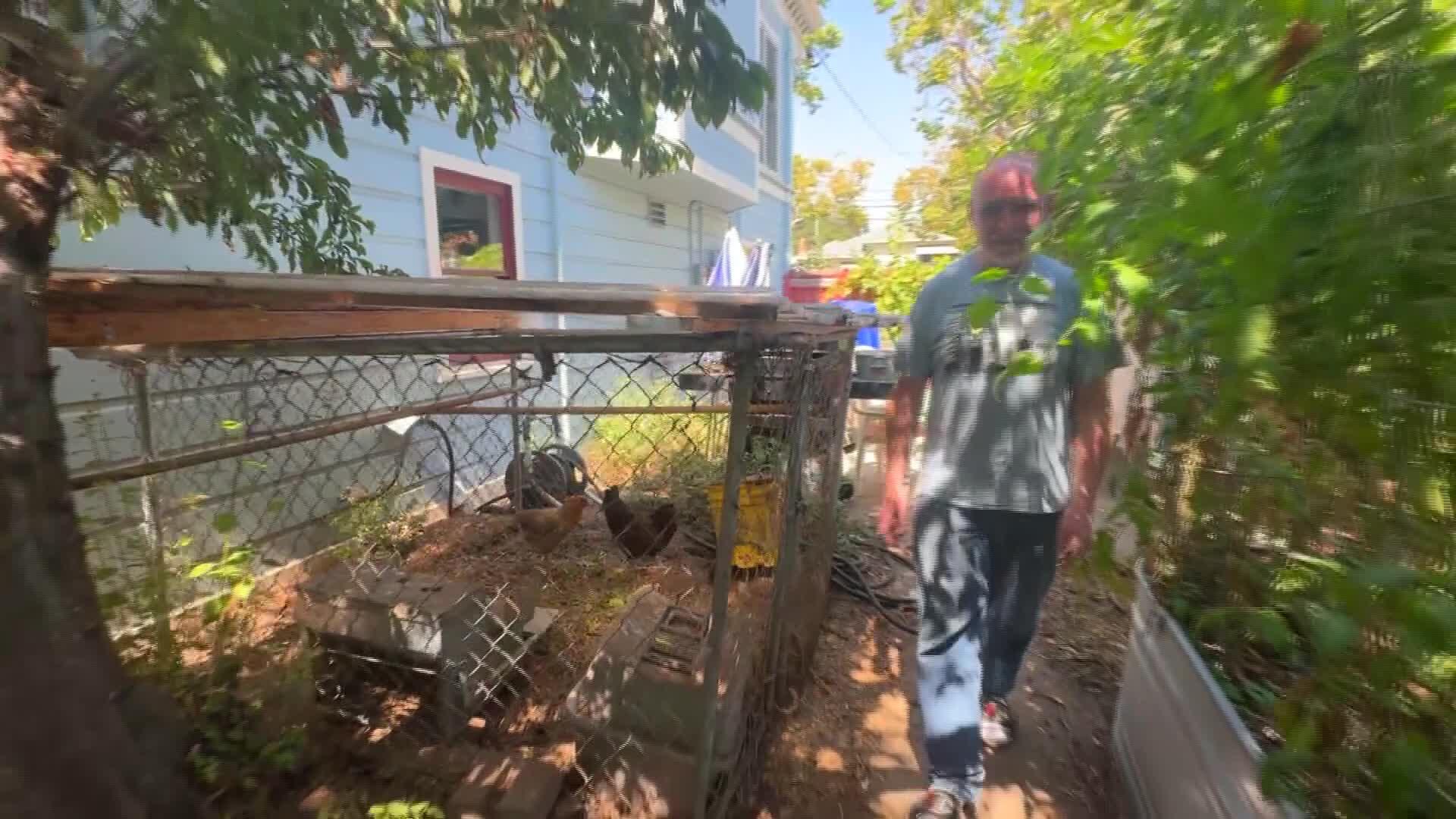Superfood for bees to fight against threats developed using Bay Area gene editing technology
For honeybees, the San Francisco Bay Area traditionally serves up a year-long feast.
"There's usually something blooming," said Alameda beekeeper Andre Kruglilkov, who owns Twin Bee Apiaries and sells about 1,000 pounds of raw honey a year made by the bees in his backyard hives.
"People apparently have a lot of interest in local honey," he exclaimed with a smile.
When asked about the effects of climate change on his business and on bees in general, he expressed concern.
"It's not just warming. It's climate disruption, right?" Kruglilkov said. "So, you have a cold and wet spring, and then basically the bees build up their population and there's not enough nectar," he said.
Bees are currently facing many other threats in addition to climate change, including habitat loss, mite infestations, viral diseases, and exposure to pesticides. The situation is depriving these important pollinators of the floral diversity that they need to survive, which threatens our food supply. Honeybees pollinate 70% of the world's leading crops, including fruits, vegetables, and nuts.
"Honeybees are really crucial in today's world for our diets," said Dr. Elina Lastro Niño, who runs the E.L. Niño Bee Lab at the University of California, Davis.
A renowned expert on honeybees and beekeeping best practices, Niño said this past year was particularly bad for bees.
"Beekeepers have reported losing approximately 60% of their colonies, which is really huge," Niño said.
Now, there's a remarkable breakthrough that promises some hope.
British and Danish researchers have just engineered a superfood to protect honeybees from the growing threat. Their results are published in the weekly science and technology journal Nature.
"The work that we did here represents a major technology breakthrough for the beekeeping industry and for food security and global pollination," noted University of Oxford researcher Professor Geraldine Wright.
The scientists first identified the key compounds in pollen that benefit bees which involve six plant sterols. They then genetically engineered a strain of yeast to produce a precise mixture of these nutrients a sustainable and affordable way.
The colonies fed the superfood thrived and boosted reproduction when compared to the control group.
"So that's really exciting," said Niño.
Watch: Dr. Nino explains how you don't have to be a beekeeper or scientist to provide help to honeybees.
To create the food, the researchers used the breakthrough gene editing tool known as CRISPR-Cas9. The tool was first identified by UC Berkeley Scientists Dr. Jennifer Doudna who along with Emmanuelle Charpentier, won the 2020 Nobel Prize in Chemistry for the breakthrough invention.
"Bay Area technology! It's even cooler to have that be part of developing this diet," exclaimed Niño.
As for Kruglikov, news of the breakthrough was sweet.
"If you come up with some means of improving their longevity and improving the likelihood of the hive succeeding and surviving and continuing, I think that's wonderful," said Kruglikov.




